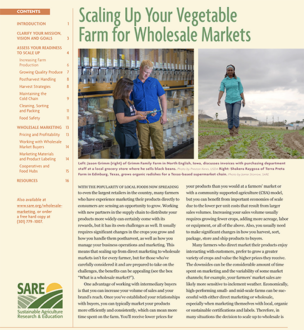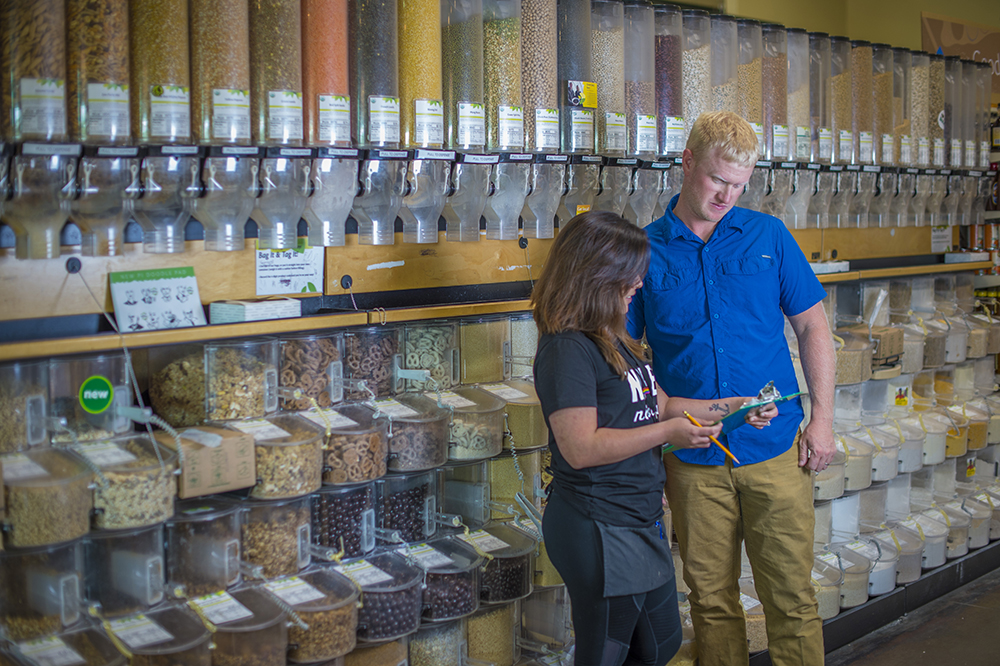
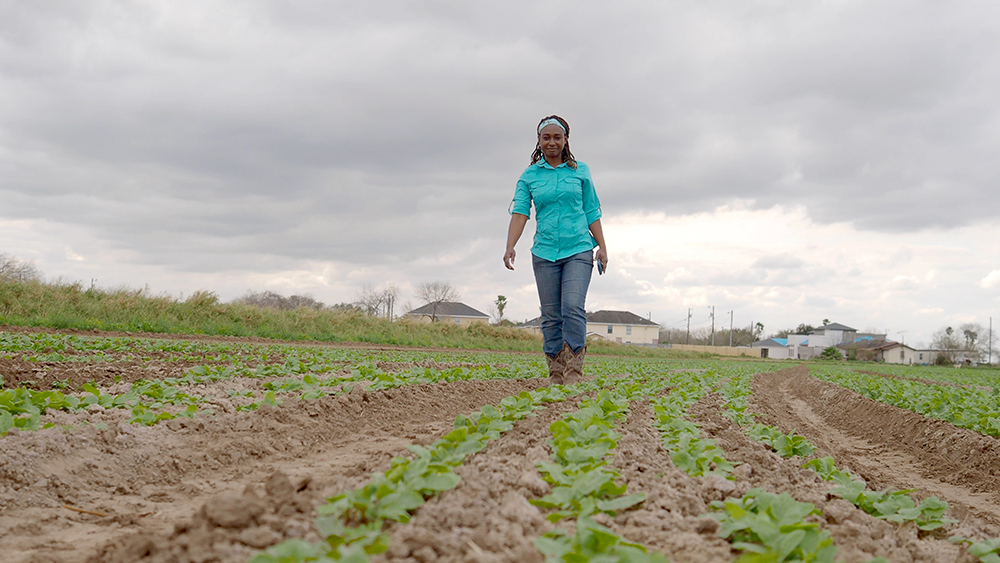
With the popularity of local foods now spreading to even the largest retailers in the country, many farmers who have experience marketing their products directly to consumers are sensing an opportunity to grow. Working with new partners in the supply chain to distribute your products more widely can certainly come with its rewards, but it has its own challenges as well. It usually requires significant changes in the crops you grow and how you handle them postharvest, as well as how you manage your business operations and marketing. This means that scaling up from direct marketing to wholesale markets isn’t for every farmer, but for those who’ve carefully considered it and are prepared to take on the challenges, the benefits can be appealing (see the box “What is a wholesale market?”).
One advantage of working with intermediary buyers is that you can increase your volume of sales and your brand’s reach. Once you’ve established your relationships with buyers, you can typically market your products more efficiently and consistently, which can mean more time spent on the farm. You’ll receive lower prices for your products than you would at a farmers’ market or with a community supported agriculture (CSA) model, but you can benefit from important economies of scale due to the lower per unit costs that result from larger sales volumes. Increasing your sales volume usually requires growing fewer crops, adding more acreage, labor or equipment, or all of the above. Also, you usually need to make significant changes in how you harvest, sort, package, store and ship products to buyers.
Many farmers who direct market their products enjoy interacting with customers, prefer to grow a greater variety of crops and value the higher prices they receive. The downsides can be the considerable amount of time spent on marketing and the variability of some market channels; for example, your farmers’ market sales are likely more sensitive to inclement weather. Economically, high-performing small- and mid-scale farms can be successful with either direct marketing or wholesale, especially when marketing themselves with local, organic or sustainable certifications and labels. Therefore, in many situations the decision to scale up to wholesale is about your vision for yourself and your business: What kind of farm do you want to operate? How do you want to spend your time? What kind of marketing and customer interaction do you prefer? If you decide to scale up, are you prepared to take on the challenges of doing so?
What is a Wholesale Market?
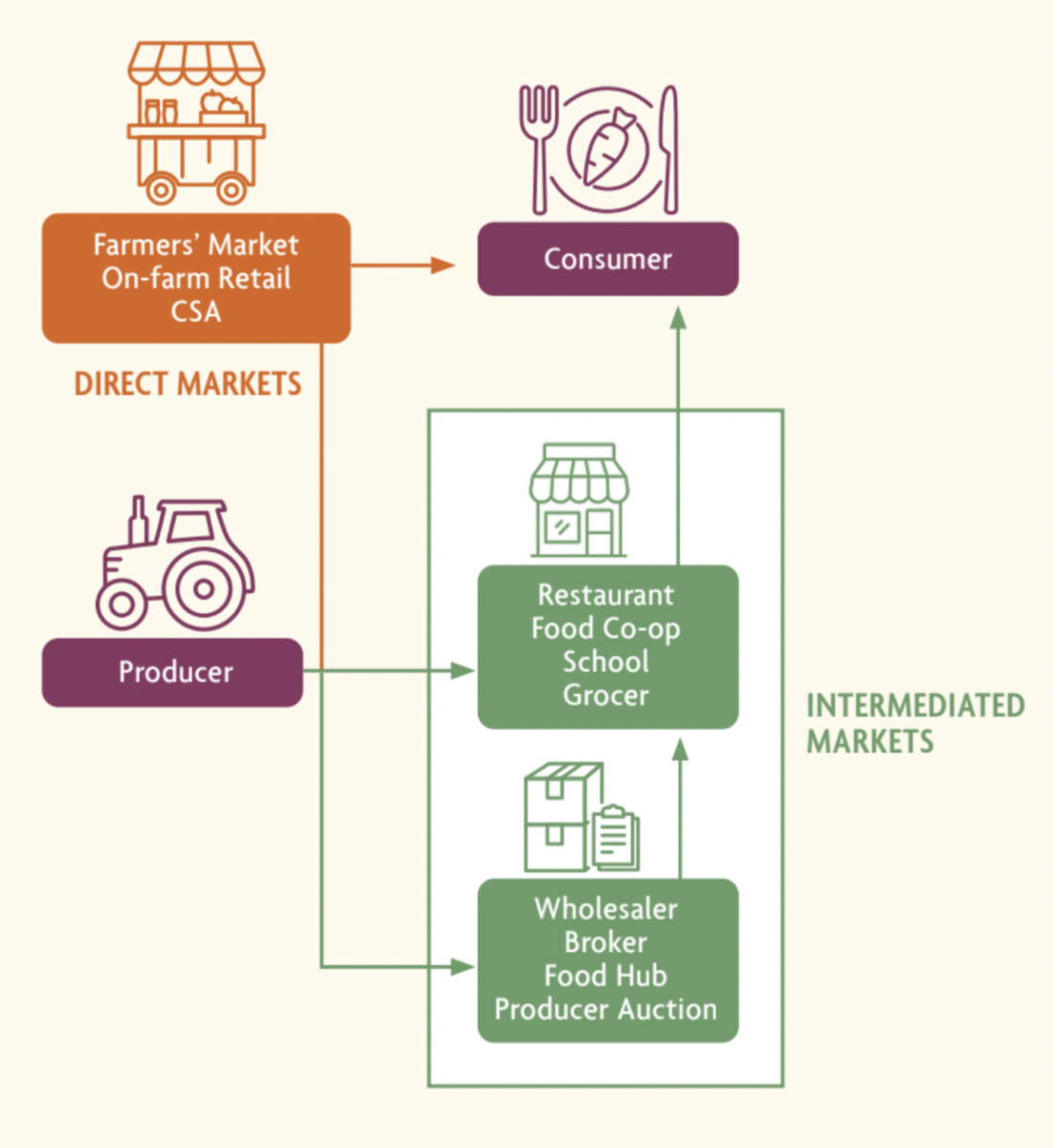
This publication uses the term “wholesale market” to refer to any intermediary in the supply chain that you sell your products to before they reach the consumer. These intermediary buyers include supermarkets, restaurants, distributors, processors, food hubs, institutions, brokers and terminal market buyers, as well as others. These buyers can also be referred to as “intermediated markets.” (Note: Even though the terms “wholesale” and “wholesale markets” are commonly used to refer to intermediated markets in general, a “wholesaler” is a distinct type of business within the intermediated marketplace. See figure to the right.)
Direct marketing, on the other hand, refers to any channel where you sell directly to consumers, most commonly through a farmers’ market, CSA, farm stand or online store. Producers have the option to use many direct and intermediated markets to serve the end consumer. Within intermediated markets the supply chain can be shorter or longer depending on the buyer you work with–for example, wholesalers and brokers are more removed from the end consumer than restaurants and grocery stores.
Adapted from the University of Kentucky's MarketReady Producer Program
The decision to scale up doesn’t need to be an either/or proposition. Some farmers may choose to switch the majority of their operation to wholesale while retaining a smaller direct-market operation for their most valuable crops. Others find ways to grow gradually and explore whether scaling up seems right for them, for example by beginning with direct deliveries of products to nearby restaurants and small grocers.
Transitioning to Organic Production
Interested in pursuing organic sales and price premiums as part of a wholesale strategy? Learn more about the transition process with SARE’s bulletin Transitioning to Organic Production.
When Shakera and Juan Raygoza of Terra Preta Farm in Edinburg, Texas, transitioned from a small scale, diversified operation to growing 15 acres of organic radishes for local wholesale markets, they decided to continue operating a small market garden and two high tunnels at the same time. Because they’re located in an urban area, they wanted to use the garden and tunnels to help maintain relationships with their local community through a CSA, school tours and other on-farm activities.
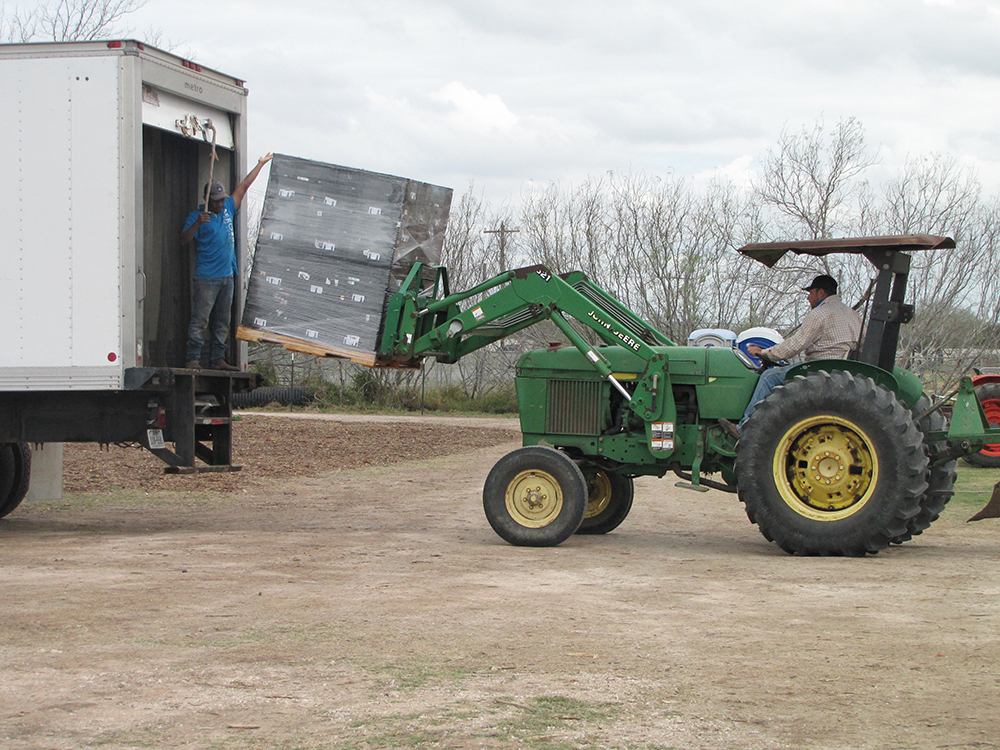
“Even though we could just focus on wholesaling, we always strive to have that component of allowing people to come and harvest, and to have that connection with them,” says Juan Raygoza. This aligns with their personal values, says Shakera Raygoza. Where they are in South Texas, “we have a lot of diet-related diseases, like obesity, diabetes and cardiovascular disease. So we really want to try and provide this good food for our community.”
This bulletin introduces small- and mid-scale direct- market farmers to the key issues you’ll need to consider if you’re thinking about scaling up a produce operation for wholesale markets. Because intermediary buyers are generally less forgiving of inconsistent quality and supply than direct market customers are, beginning farmers are advised to start out with direct markets while they gain practical experience and refine their systems. You should think about wholesale markets only after you feel confident in your business skills and in your ability to consistently produce good-quality crops. It’s also critical to be familiar with all the national and state regulations associated with food handling, certification and processing before getting started.
